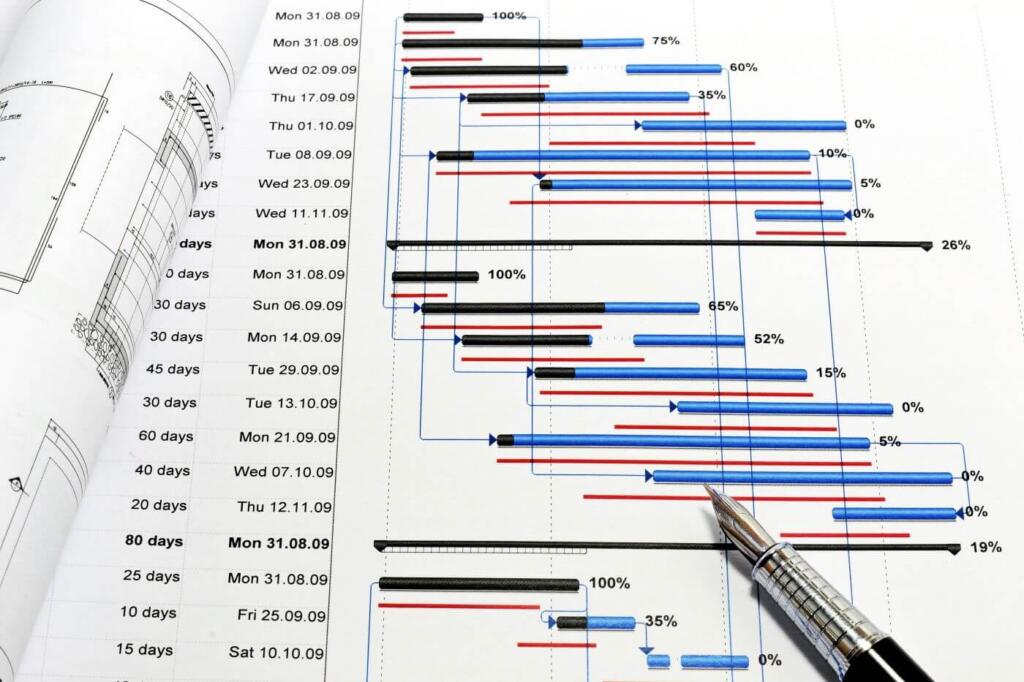“Ghost schedules.” “Shadow schedules. “Secret schedules.” Whatever they may be called, these unofficial construction schedules, maintained separate from the shared project schedule, may have unintended consequences for the project team and may especially present challenges if the need to perform a forensic schedule analysis arises.
In this post we explore:
- The reasons why a ghost schedule may be created
- The consequences of relying on ghost schedules
- Considerations when creating ghost schedules
Why Ghost Schedules are Created
There are several reasons why ghost schedules – schedules which may be shared with only certain stakeholders or members of a project team – are created.
Sometimes “ghost schedules” are simply models to test out different scenarios, such as targeting an earlier completion date or crashing the schedule (adding resources to accelerate).
Other times, “ghost schedules” are created when an upstream party, typically the owner, does not, for example, approve a contractor’s schedule, only approves the schedule for billing purpose, or does not allow the contractor to insert activities representing changes or delays in the schedule. In these situations, the contractor may maintain a separate schedule that reflects their performance intent (how they plan on performing the work), including potential mitigation measures, or schedules that model the impact of any ongoing, pending, or “unapproved” changes to the project.

Inaccurate Representation
Occasionally, ghost schedules are created for nefarious purposes, where the schedule being shared with the owner does not accurately represent when the project will actually complete or where the contractor attempts to show critical path delays as the responsibility of another party. In these cases, the contractor may have a different, internal schedule for managing the project – one which may have more or different detail from the shared schedule. For example, the contractor may present the owner with a schedule that shows owner activities as driving the critical path in order to better position itself for recovery of delay but have separate schedules with different activities and logic that result in a different critical path. In some cases, the schedule which contractors share with their subcontractors is not the same schedule they share with the owner. A contractor may attempt to present earlier completion deadlines in its subcontract schedule, while submitting a less aggressive schedule to the owner.
Consequences of Ghost Schedules
Regardless of the reasons for the creation of ghost schedules, their existence may have negative consequences. From a cost and controls standpoint, maintaining multiple schedules requires more resources and time. Another negative outcome of creating ghost schedules lies in the accuracy of the schedule and the purpose of the schedule. Schedules are planning and recordkeeping tools, and their ability to serve these functions can be diminished when multiple schedules are maintained.

Challenges of Ghost Schedules in Claims and Delay Analysis
Ghost schedules can be especially challenging in situations involving claims. Confusion can arise when parties utilize different basis documents for the evaluation of delays and preparation of claims. When performing a delay analysis, the analysis has enhanced credibility when it can be established that the parties in dispute were familiar with the project schedules and the schedule updates were reviewed and approved. For retrospective analyses that use a forward-looking methodology, credibility is established when it can be demonstrated that the schedules being evaluated were used to manage the project.
Avoiding the Pitfalls of Ghost Schedules
Contractors should consider whether ghost schedules are truly necessary in their project management and identify potential steps that may protect rights, ensure consistency, and ease the process if delay analysis is later required. Prompt preparation and negotiation of time-impact analyses can help avoid the need for ghost schedules, by obtaining owner approval for modeling new impacts within the schedule network.
Another strategy, if an owner is not allowing certain information to be modeled in a schedule, may be to consider publishing “ghost” schedules along with project schedule submission – at which point, the schedule may be a “ghost” no longer.
To learn more about scheduling best practices, or for assistance with forensic schedule analysis, please contact Andrew Sargent, Jeff Katz, call 888.298.5162 or submit an inquiry.








